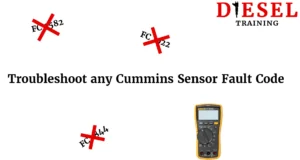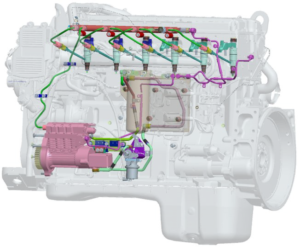HVO is short for Hydrotreated Vegetable Oil. HVO diesel is a second generation biofuel.
What is the difference between first and second generation biofuel?
1st generation biofuels are produced from crops, while 2nd generation biofuels are produced from residual and waste products. HVO biofuels are mainly made of Industrial and Household waste. Waste products used for HVO biofuels are animal fat which would otherwise be left unused and used frying oil.
People who work with machinery or large fleets which store and use their own diesel, are probably aready aware of the “Diesel bug”. The Diesel bug is micro-organism growth in the fuel storage tank (on- or off-vehicle), which if left untreated, can cause sludge in tank and also significant damage to engine components.
The mixture of 1st generation biodiesel and mineral diesel, allows water to mix into the diesel, which promotes micro-organism growth. Diesel Bug can be: Bacteria, Mould, Yeast or a Biofilm of microbes.
HVO diesel is inhibiting growth, because it does not form bonds with water or oxygen molecules. This allows HVO fuels to be stored for extended periods of time without requiring extra treatment.
How is HVO diesel made?
HVO fuels are made by using hydrogen to break big vegetable oil molecules into smaller ones (Hydrocracking) or by adding Hydrogen to molecules (Hydrogenation) of vegetable oil.
What is the environmental impact of HVO biofuels?
The final HVO product is non-toxic, biodegradable and emits little odor, while it burns better and is easier to filter.
Due to its high purity, HVO diesel has high burning efficiency which results in:
- 90% less CO2
- 30% less fine particles
- Reduced NOx
What is the cetane number of HVO diesel?
Mineral diesel has a cetane number of 51. 1st generation biodiesels typically have a cetane number between 50 and 65.
HVO diesel has a cetane number between 70 and 90. A higher cetane number provides better starting performance, clean combustion and less chance of waxing in extremely cold weather.
Why are HVO fuels so expensive?
HVO fuels are a product of a complex process, which increases production costs. However, it is expected that once demand increases and more HVO fuel manufacturers enter the market, prices will drop.
Can I mix normal diesel with HVO diesel?
Yes, that is possible and there are no engine modifications needed.
Can I run my diesel engine on pure HVO diesel?
Of course! You will also notice a reduction on your service costs. Due to the purity of the fuel, HVO diesel combustion generates less particles in-cylinder.
This brings the following benefits:
- Improved service life of the piston rings (carbon particles are hard and cause wear)
- Oil will remain cleaner for longer, as less carbon will mix with oil
- The DPF will have to trap less particles, which will result in a service life improvement.
Which engine manufacturers have approved the use of HVO diesel?
- Daimler
- FPT
- MTU
- Deutz
- ISUZU
- Perkins
- Cummins
- Scania
- Volvo Penta










